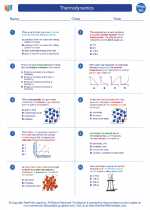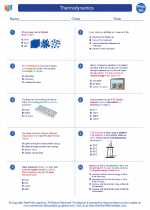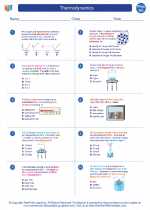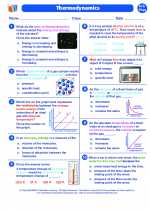Isolated Systems in Physics
An isolated system is a physical system that does not interact with its surroundings. This means that there is no exchange of matter or energy between the system and its environment. In other words, the total energy and momentum of an isolated system remain constant over time.
Characteristics of Isolated Systems
- No external interactions: An isolated system does not exchange energy or matter with its surroundings.
- Conservation of energy: The total energy of an isolated system remains constant, as there are no external forces doing work on the system.
- Conservation of momentum: The total momentum of an isolated system is also conserved, meaning that the net external force on the system is zero.
Examples of Isolated Systems
Some common examples of isolated systems include:
- A sealed thermos flask containing hot coffee, where there is minimal heat exchange with the surroundings.
- A planet orbiting the sun, where the gravitational forces between the planet and the sun keep the system isolated from external influences.
- A closed, insulated container of gas undergoing an adiabatic process, where there is no heat exchange with the surroundings.
Studying Isolated Systems
When studying isolated systems in physics, it is important to understand the principles of conservation of energy and momentum. Additionally, students should be able to analyze and solve problems involving isolated systems, such as calculating the final velocity of objects after a collision or determining the thermal equilibrium of a closed system.
Key Concepts to Master
- Conservation of energy: Understand how the total energy of an isolated system remains constant, and be able to apply the principle to solve problems.
- Conservation of momentum: Learn how the total momentum of an isolated system is conserved, and practice using this principle in calculations and experiments.
- Work and heat interactions: Explore how work and heat interactions can affect isolated systems, and distinguish between different types of thermodynamic processes.
Study Tips
To excel in understanding isolated systems, students can:
- Practice solving problems related to conservation of energy and momentum in isolated systems.
- Work on real-life examples and case studies to apply the concepts of isolated systems to practical situations.
- Seek additional resources such as textbooks, online tutorials, and interactive simulations to reinforce their understanding.
[Isolated Systems] Related Worksheets and Study Guides:
.◂Physics Worksheets and Study Guides High School. Thermodynamics
Worksheet/Answer key Thermodynamics
Thermodynamics  Worksheet/Answer key
Worksheet/Answer key Thermodynamics
Thermodynamics  Worksheet/Answer key
Worksheet/Answer key Thermodynamics
Thermodynamics  Worksheet/Answer key
Worksheet/Answer key Thermodynamics
Thermodynamics 

 Worksheet/Answer key
Worksheet/Answer key
 Worksheet/Answer key
Worksheet/Answer key
 Worksheet/Answer key
Worksheet/Answer key

The resources above cover the following skills:
PHYSICAL SCIENCE (NGSS)
Matter and Its Interactions
Students who demonstrate understanding can:
Develop a model to illustrate that the release or absorption of energy from a chemical reaction system depends upon the changes in total bond energy.
Energy
Students who demonstrate understanding can:
Create a computational model to calculate the change in the energy of one component in a system when the change in energy of the other component(s) and energy flows in and out of the system are known.
Plan and conduct an investigation to provide evidence that the transfer of thermal energy when two components of different temperature are combined within a closed system results in a more uniform energy distribution among the components in the system (second law of thermodynamics).